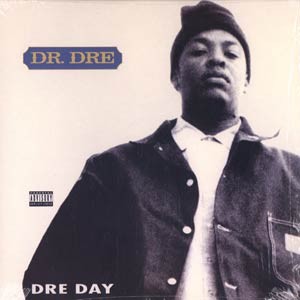
"Fuck Wit Dre Day (And Everybody's Celebratin')", or as a single titled "Dre Day", is a song by American rapper and record producer Dr. Dre featuring fellow American rapper Snoop Doggy Dogg, released in May 1993 as the second single from Dre's debut solo album, The Chronic. "Dre Day" was a diss track targeting mainly Dre's former groupmate Eazy-E, who led their onetime rap group N.W.A and who, along with N.W.A's manager Jerry Heller, owned N.W.A's record label, Ruthless Records. In "Dre Day" and in its music video, which accuse Eazy of cheating N.W.A's artists, Dre and Snoop degrade and menace him. Also included are disses retorting earlier disses on songs by Miami rapper Luke Campbell, by New York rapper Tim Dog, and by onetime N.W.A. member Ice Cube, although Dre, while still an N.W.A member, had helped diss Cube first. After "Dre Day," a number of further diss records were exchanged.

"Let Me Ride" is a song by rapper and producer Dr. Dre, released in 1993 as the third single from his debut studio album, The Chronic. It experienced moderate success on the charts, until it became a massive hit when Dre won a Grammy Award for Best Rap Solo Performance for the song during the Grammy Awards of 1994. The chorus is sung by Ruben and Jewell, and Snoop Dogg raps the line "Rollin' in my 6-4" and appears in some background vocals.
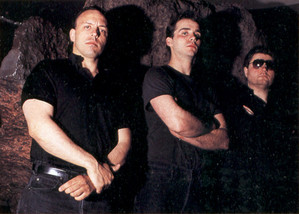
Controlled Bleeding was an experimental music group based in Massapequa, New York. The group was founded by Paul Lemos, the group's only consistent member. Most of Controlled Bleeding's released recordings feature two main collaborators, Chris Moriarty and vocalist Joe Papa, who both died in the late 2000s. In February 2020 Lemos announced that the band had dissolved.
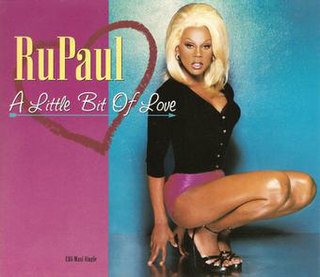
"A Little Bit of Love" is a song and music video performed and produced by drag icon RuPaul and released on February 25, 1997. This was the second single released from the Foxy Lady album. The song was written by RuPaul and Joe Carrano and released through Rhino Records and features guest vocals by Vicki Sue Robinson.
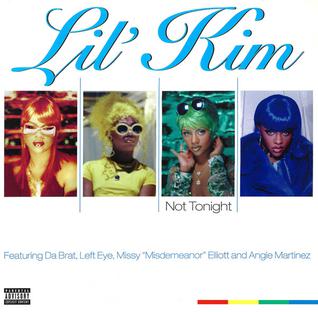
"Not Tonight" is a song performed by the American rapper Lil' Kim featuring Jermaine Dupri for her debut studio album Hard Core (1996). A remix was released the following year featuring female rappers Da Brat, Missy "Misdeameanor" Elliott, Angie Martinez, and Lisa "Left Eye" Lopes for the Nothing to Lose soundtrack. It was released on June 24, 1997, by Atlantic Records.
"Connected" is a song recorded by Japanese recording artist and lyricist Ayumi Hamasaki for her fourth studio album I Am..., released on January 1, 2002. The song was written by Hamasaki herself while it was produced by Dutch disc jockey Ferry Corsten. The song was first conceived when Corsten had developed a track in Europe entitled "The Lots of Love". Despite him playing it at several events and shows throughout Europe, he did not release the track. After this, Hamasaki and Corsten had started to collaborate and the pair had changed and used the finishing result to create "Connected".

"No Time" is a song by American rapper Lil' Kim. It was released as her debut single in 1996 which served as the first single from Kim's debut album Hard Core. It peaked at number 18 on the Billboard Hot 100 and reached the Top 10 on the Hot R&B/Hip-Hop Songs. "No Time" topped the US Rap Songs for nine weeks, becoming Kim's first number 1 hit on that chart. Additionally, the song charted at number 45 on the UK Singles Chart. The single was certified Gold by the RIAA. "No Time" contains a sample of Vicki Anderson's "Message from the Soul Sisters" and Lyn Collins's "Take Me Just As I Am".
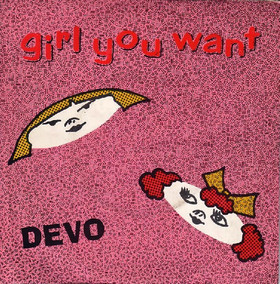
"Girl U Want" is a 1980 single by American new wave band Devo. It was the first single released from their third studio album, Freedom of Choice (1980).

"Where Has Love Gone?" is a song by British singer-songwriter Holly Johnson, released in 1990 as the lead single from his second studio album Dreams That Money Can't Buy (1991). The song was written by Johnson and produced by Andy Richards.
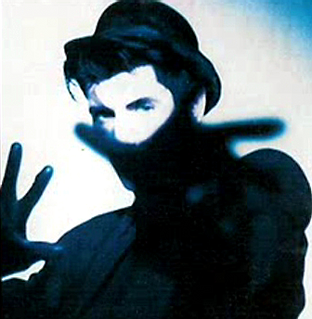
Christian F. Kruzinski, better known also as Cee Farrow, was a new wave singer of the early 1980s.
Hugh Pescod, better known as Redlight, is a British DJ, record producer, re mixer and composer from Bristol.
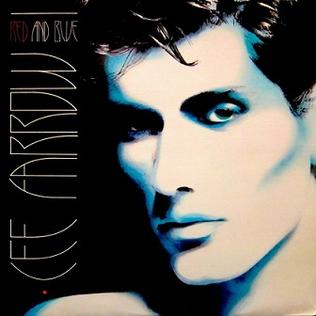
Red and Blue is the debut and only album from German singer Cee Farrow, released in 1983.
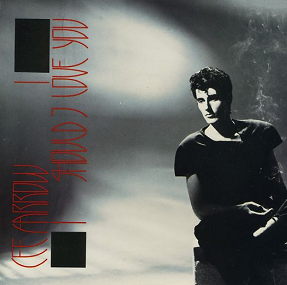
"Should I Love You" is a song by the German singer Cee Farrow, released in 1983 as the lead single from his debut album Red and Blue. It was written by Farrow and Lothar Krell, and produced by Andy Lunn. Released in North America only, the single reached No. 82 on the Billboard Hot 100 and remained in the charts for six weeks.
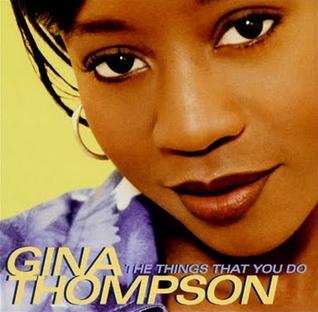
"The Things That You Do" is a song performed by American R&B singer Gina Thompson from her debut album, Nobody Does It Better (1996). The single version was released as the Bad Boy Remix featuring Missy Elliott, who gained notability and mainstream attention for her unique signature, "Hee-Hee-How" punchline. Elliott's contribution managed to help the single crack the top 20 on Billboard's Hot R&B/Hip-Hop Songs chart, where it peaked at #12 and spent a total of 29 weeks. The song also appeared on the US Billboard Hot 100 chart, where it peaked at #41.

"Arms Of Loren" is a single by the duo E'voke first released in 1996. The track has been re-released numerous times.
Chakk were an industrial funk band from Sheffield, who existed from 1981 until 1987. Members were Alan Cross, Mark Brydon, Dee Boyle, Sim Lister, Jake Harries and Jon Stuart. The band never achieved commercial success, but have been noted for their wide influence on later British dance music, particularly via Fon Studios. Mark Brydon later went on to form and achieved success with Moloko.

"Oooh This I Need" is the final single from American singer Elisa Fiorillo, released as the second single from her 1990 album I Am in early 1991. The song was written and produced by Prince, who had worked with Fiorillo on the album, where he wrote five tracks.

"Soul Destruction" is a song by British band T'Pau, released as the third single from their 1991 third studio album The Promise. The song was written by vocalist Carol Decker and rhythm guitarist Ron Rogers. It was produced by Andy Richards.
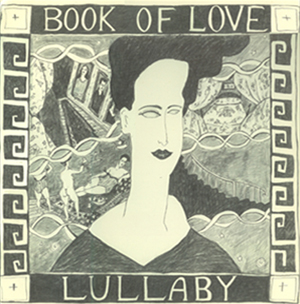
"Lullaby" is the sixth single released by the American synthpop band Book of Love. The song was the second single released from the band's second album Lullaby in 1988.

"Satisfaction" is a song by American pop singer Laura Branigan, which was released as the fourth and final single from her 1984 album Self Control. The song's original music was written by Bernd Dietrich, Gerd Grabowski and Engelbert Simons, whilst the English lyrics were written by Mark Spiro and superstar songwriter Diane Warren. It was produced by Jack White and Robbie Buchanan, who both produced the entire Self Control album together.

















